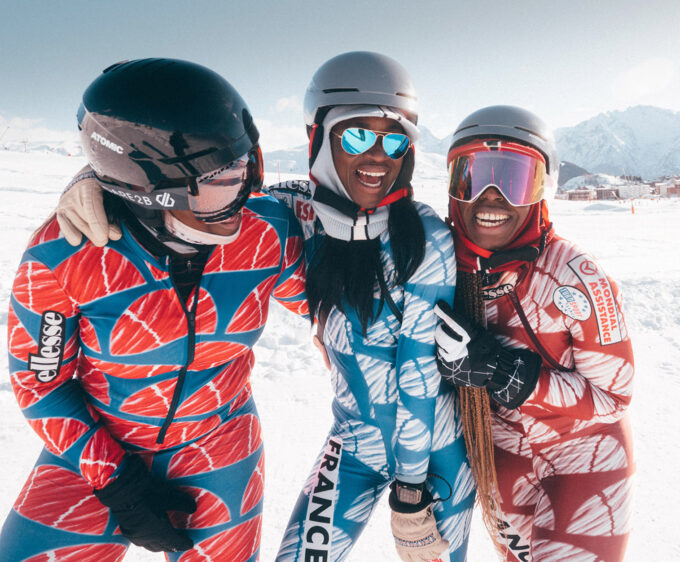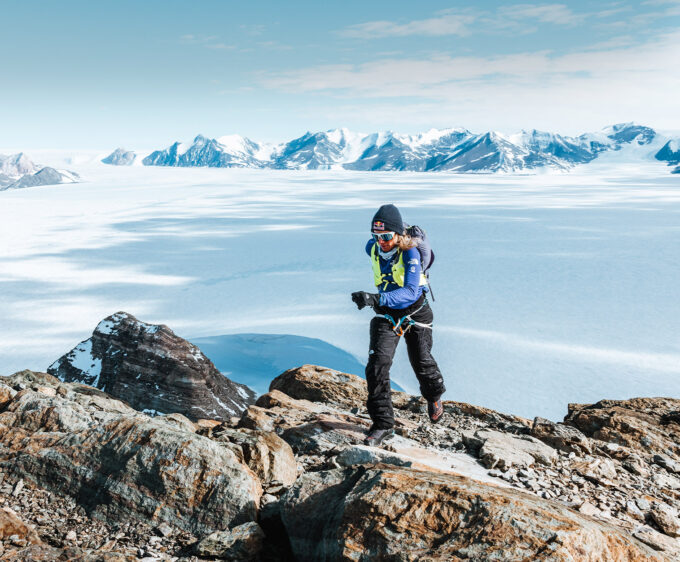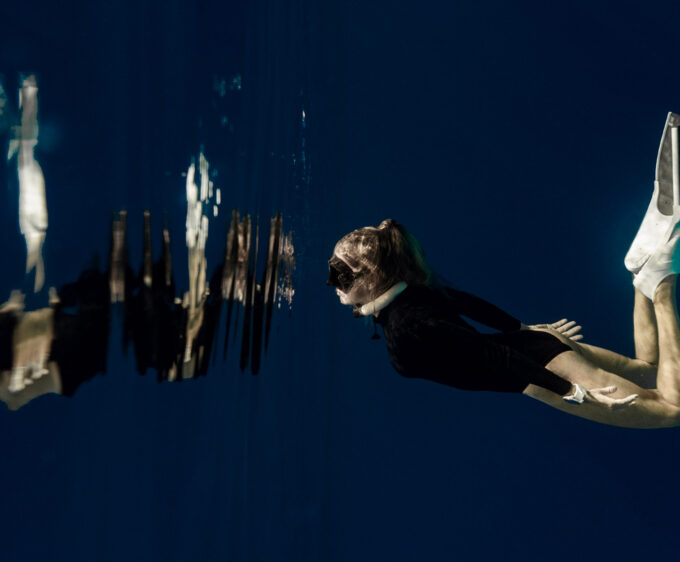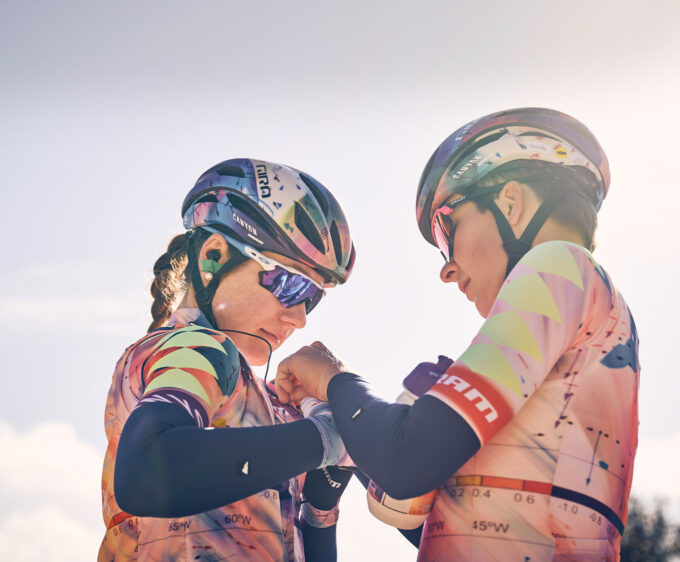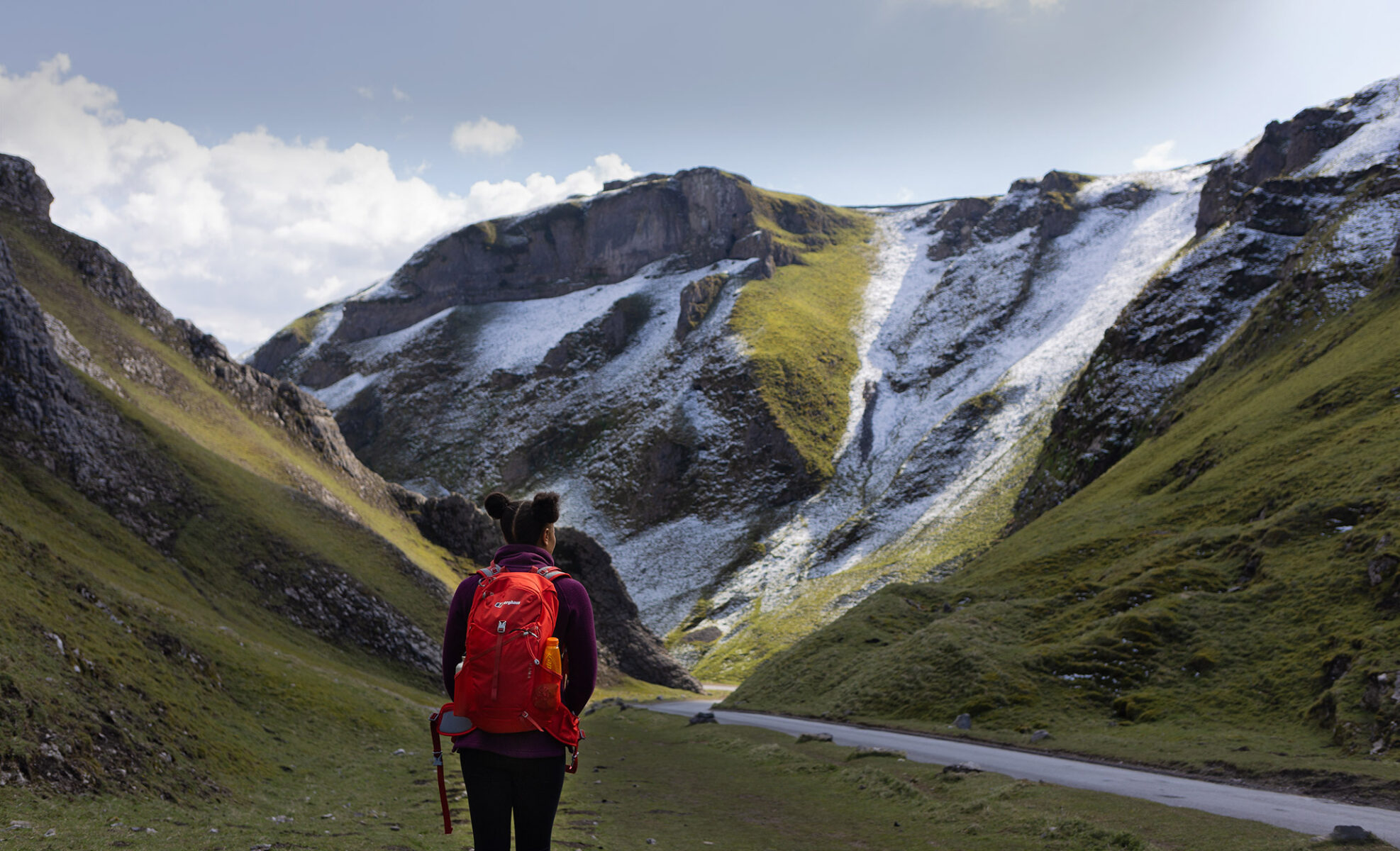
Abbie Merritt: Women With Purpose
“We need to prove that everyone has a right to the outdoors.” Tales of nature and women who exist outside the mainstream are creative forces for Abbie Merritt’s art. We talk to the visual storyteller about her inspiration and what’s coming up next
By Glorious
Photography by Abbie Merritt
Describing herself as a visual storyteller, Abbie Merritt is based in the UK’s south west. She always felt grateful for being able to grow up in a rural location, surrounded by the outdoors. From a young age, she felt more comfortable in the natural world than anywhere else, particularly, as she recalls, “surrounded by all the odd and unwanted animals that landed on the doorstep of our smallholding”. She felt a huge desire to travel, and that has always been a driving force for her. She completed a degree in Marine and Natural History Photography at Falmouth University and since then has been commissioned in an eclectic mixture of photography, filmmaking and writing projects.
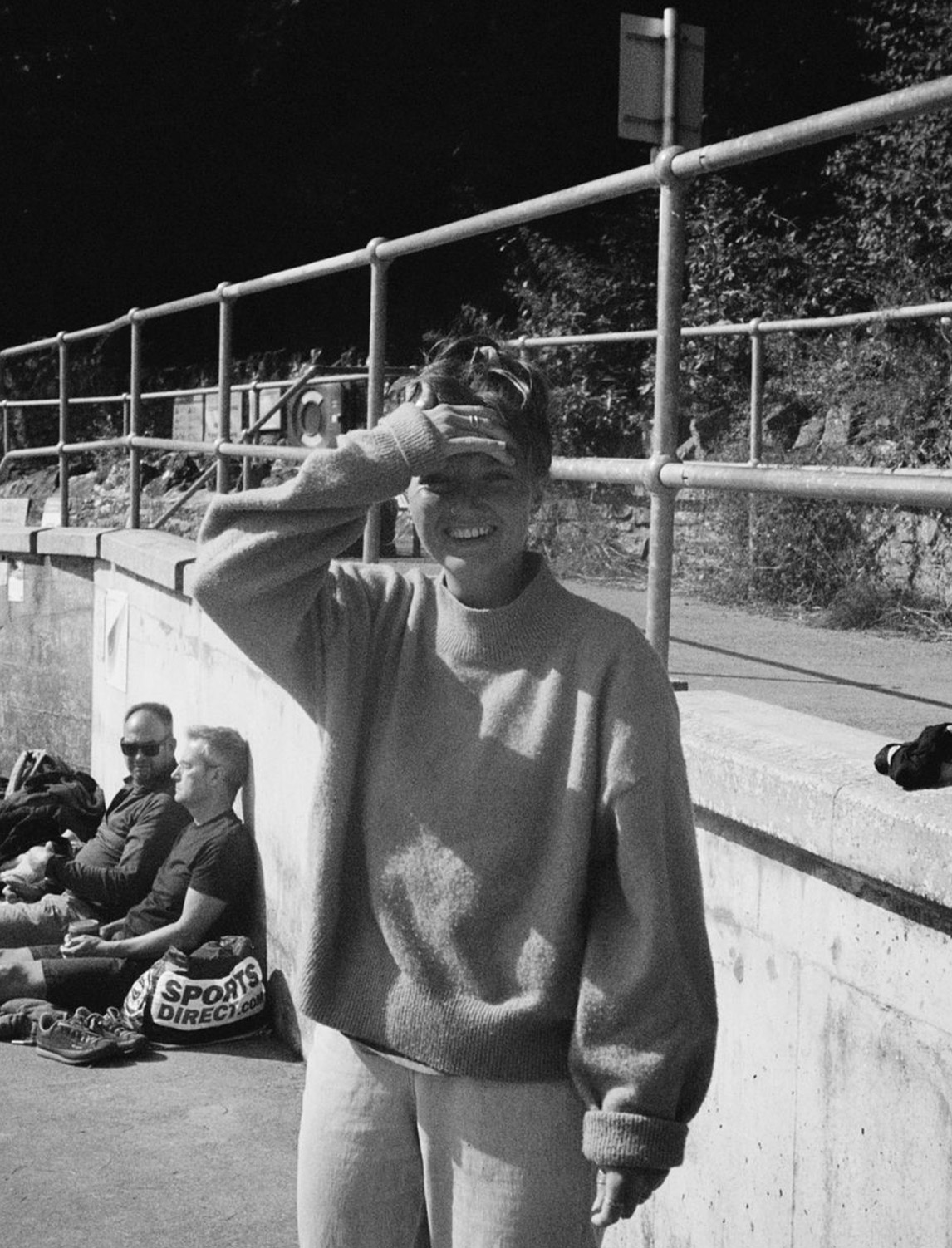
Glorious: What jobs have you done during your career?
Abbie Merritt: I’ve always worked in a range of random jobs, starting with babysitting and pet sitting. I always felt drawn to travel, I loved learning languages and exploring new places. My first trip was to Ecuador with a student experience provider when I was 15 – I’d been selling flapjacks for months! That trip gave me the thirst for more, so just after my 18th birthday I went on my first solo trip to New York, then on to Asia. I would catch buses and overnight trains to random places I’d never heard of. Where did I have the energy?
By the time I was 19, I had visited six continents, mostly solo, spent a winter season in the Alps and started connecting with people across the globe. I truly valued the interactions I was having with new people. I think that somehow weaved into my career; for a long time when people asked what I do I would respond something along the lines of ‘capturing the stories of people’, because I’m completely fascinated by all of our different journeys.
Since finishing university, I have worked in a variety of roles around my interest in the outdoors and our interaction with it. I trained to be a UK expedition leader and worked with dogs as an animal carer for the RSPCA. I try to share authentic stories where humanity and the natural world meet. Being a kinetic storyteller, I want to create projects with movement and depth but at the heart of it, I’m simply all about creating something memorable.
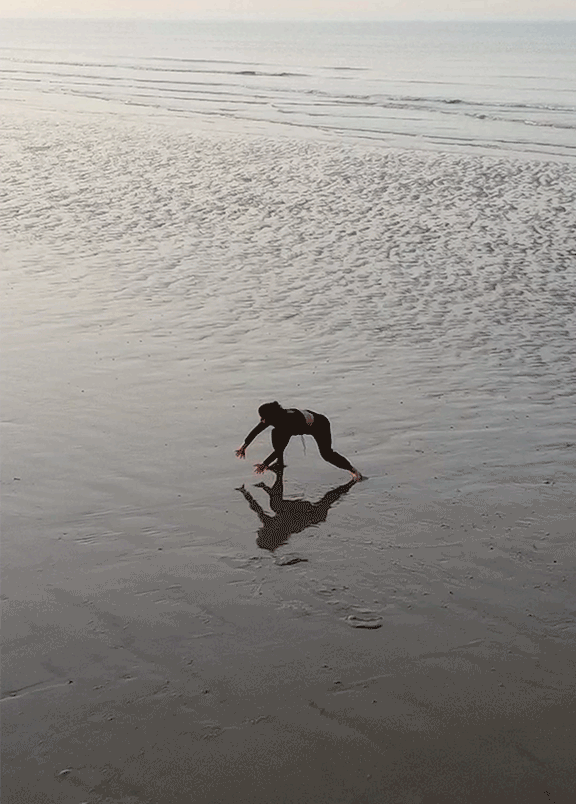
Glorious: How did your photography, filmmaking and writing career evolve?
Abbie Merritt: Photography and film have always come quite naturally to me. I thought I’d pursue a career in sculpting and painting, however after a first term at Falmouth University I switched to Marine & Natural History Photography. I was told when I was younger that I might struggle with English literature as I was dyslexic. I never really tried until my final module at Falmouth. I had been thinking about an ‘Outsiders’ project for a while and began reaching out to different women in outdoor industries, then started writing. Somehow, I kept going and managed to write a journal full of stories. I’ve found passion to be a hugely overused word but you can do a lot if you’re passionate about something.
Glorious: Why did you decide to start documenting women working in outdoor and sporting industries, and why were you so intrigued by their stories?
Abbie Merritt: While working on outdoor expeditions for the Duke of Edinburgh award, I questioned why girls were so significantly outnumbered by boys. I hate the concept of pigeon-holing people, which is probably another reason why my work is so varied and fluid. So, I started reaching out to female professionals from a number of outdoor industries, wondering what I could do to help. With that in mind, Outsiders: Her Stories was born to improve representation by documenting positive role models and inspiring confidence in the natural world.
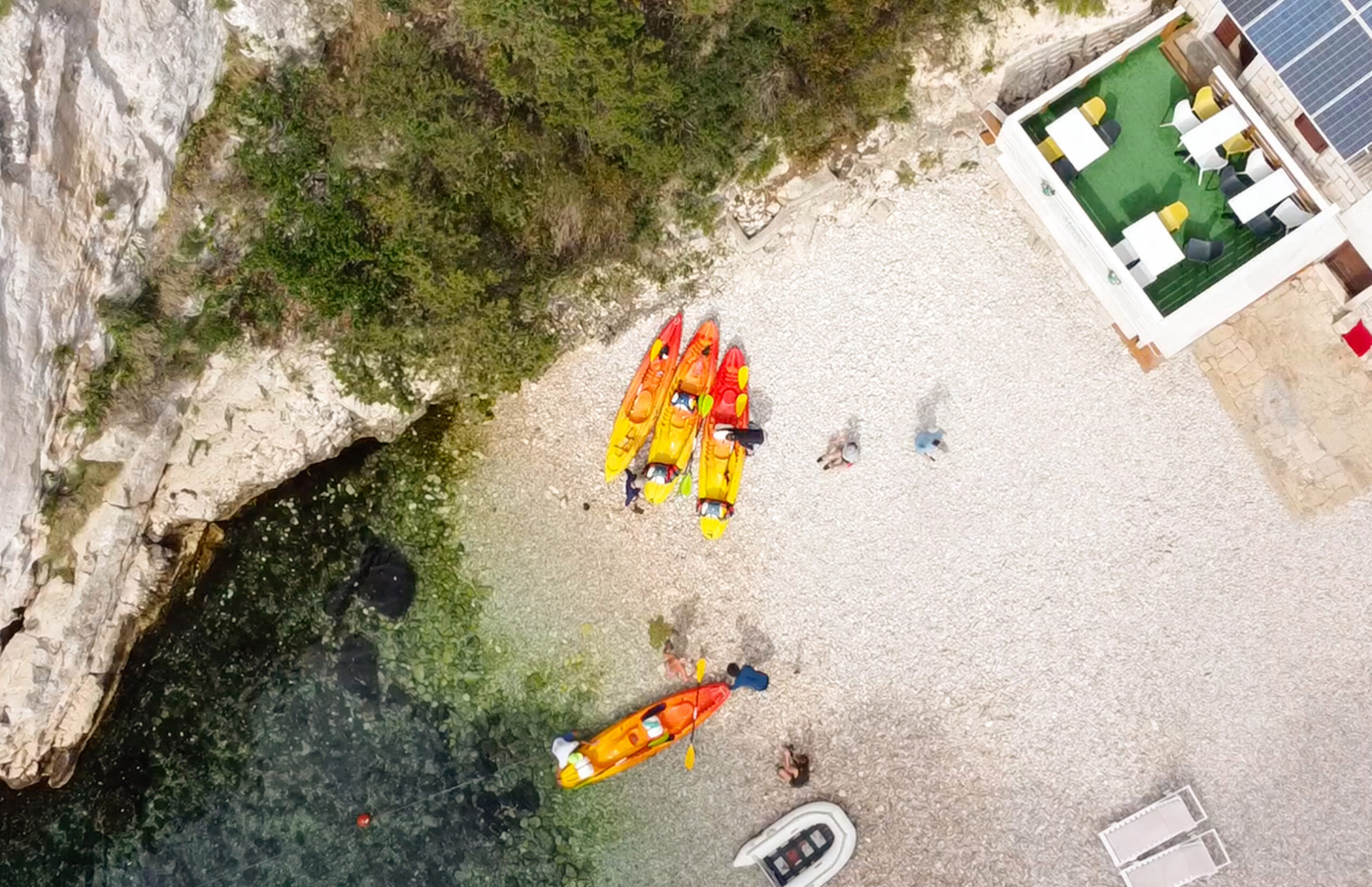
OUTSIDERS
I kept coming up against the same problems with the representation of women in outdoor media because everyone looked a certain way, or wasn’t a role model for their strength or ability, but for their appearance. Our media around women in the outdoors was always sexualised or glorified. With this documentary project, I wanted everyone to know that if they want to enjoy the outdoors then there is a place for you. Growing up, I didn’t fit into that ‘category’ at school. I never knew I had a place in the outdoors, because I didn’t see anyone that looked like me taking part.
Glorious: What is your own sporting history – do you play/have an interest in sports?
Abbie Merritt: It took me a while to realise how conditioned we were, as a generation of young women, to think of exercise as punishment.
From a young age, I felt that participating in sport was to make your body look a certain way. I’ve never considered myself a sporty person, but somehow my love for the outdoors grew into a passion for being active outside. I wasn’t an active child, so I never knew I had so much power over my mood or body until I felt it when walking, climbing or cold water swimming etc. I remember when I first started to feel stronger and more importantly, happier. I felt confident in my ability, which was something I didn’t even realise I was missing.
Nowadays, I love the mountains and the snow – I’m into any sports that involve being somewhere cold. I’ll also take every opportunity to pop out with my dog and go for a big walk, or find a big enough puddle for a dip. I’m always keen to try new things, too.
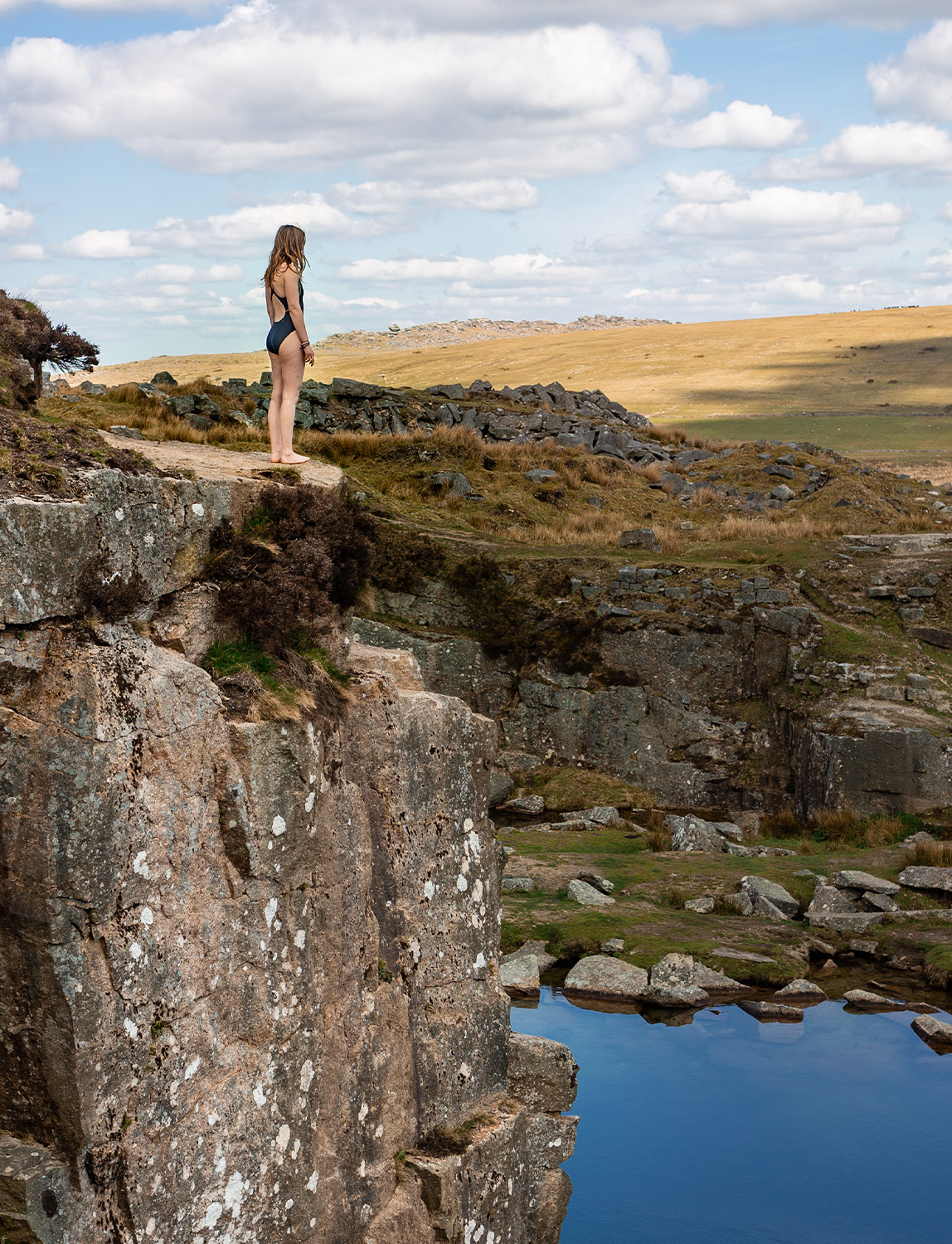
Glorious: How do you keep balance between photography, filmmaking and writing? Do you usually work by yourself or as a team?
Abbie Merritt: I’m fortunate to have a wonderful community around me of creative people, otherwise the freelance world can have a lot of solitude. I regularly work closely with an amazing producer, but otherwise I spend a lot of time on my own. Every now and then it’s good to check back in with people to make sure I’m not just bouncing ideas around in my own head like some sort of echo chamber.
I think the concept of balance is tricky, as I often look at other freelancers and feel baffled by how effortlessly in control they seem, but I think we’re all spinning plates to some extent. I love going with the ebb and flow of different projects that come my way.
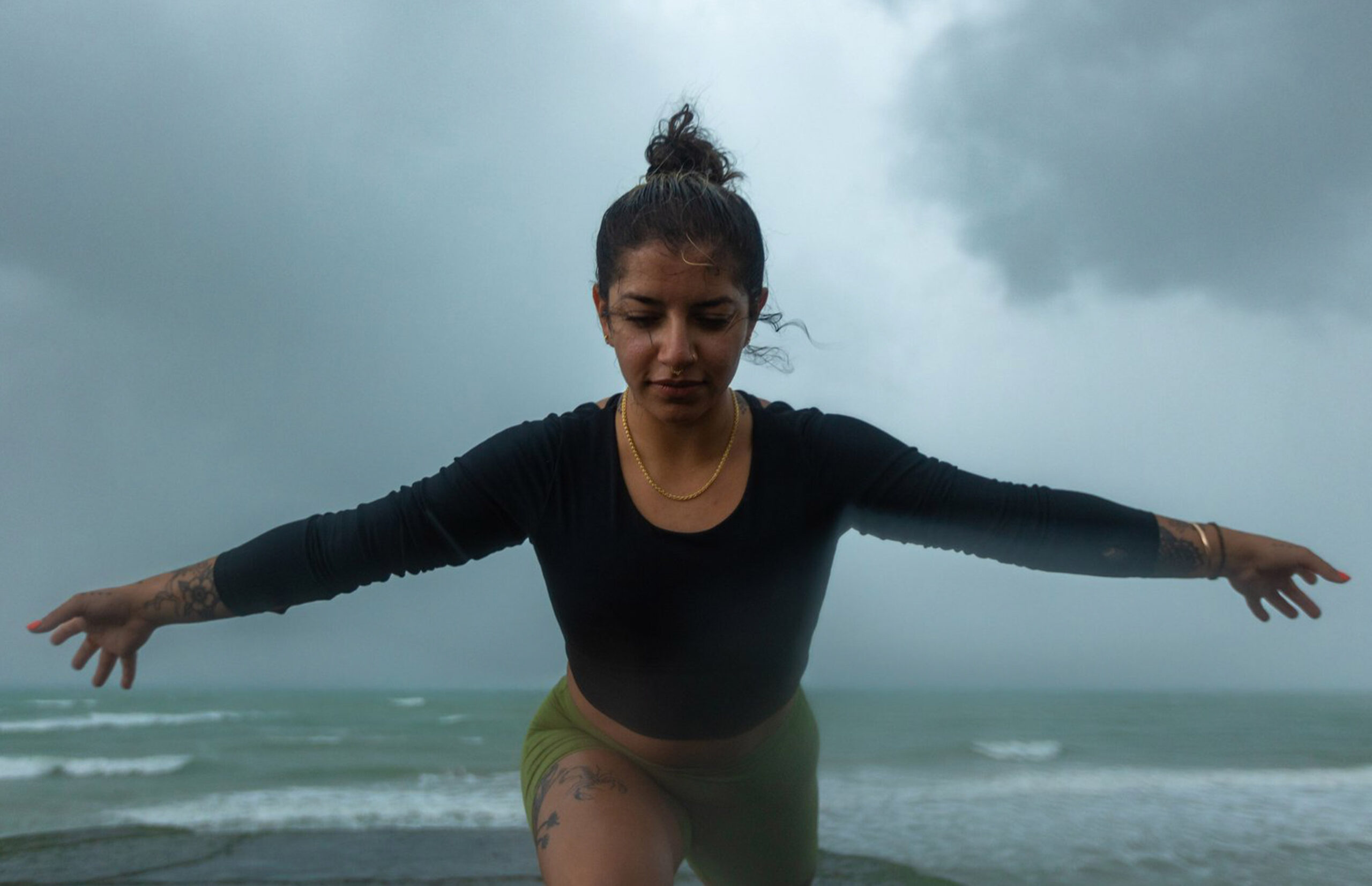
Glorious: Where do you find inspiration and who inspires you?
Abbie Merritt: I’m inspired by people, whether that’s from a good book or hearing someone through a podcast. From reading journals, to watching cinematically beautiful shots, to strangers planting in allotments or having a conversation about trees; I am inspired by the most random things.
I felt a huge wave of encouragement to do something when coming out of a film festival a few years ago, having watched Jen Randall’s film Home, documenting Sarah Outen’s monumental journey around the globe using solely her own human strength.
Glorious: Can you share your thoughts on representation of women/females athletes in UK? What do you think we can do to improve on this?
Abbie Merritt: Moving forward, we need to prove that everyone has a right to the outdoors. We are storytelling creatures, that’s what sets us apart from other animals, so perhaps utilising this evolutionary tool to inspire others is a good way to start. I’ve found that being selective about where I seek inspiration has encouraged me a lot. There are some amazing people, brands and groups working to share really positive content but, unless you’re searching for it, people can get trapped in a negative sphere of algorithms and social media.
MONUMENTAL
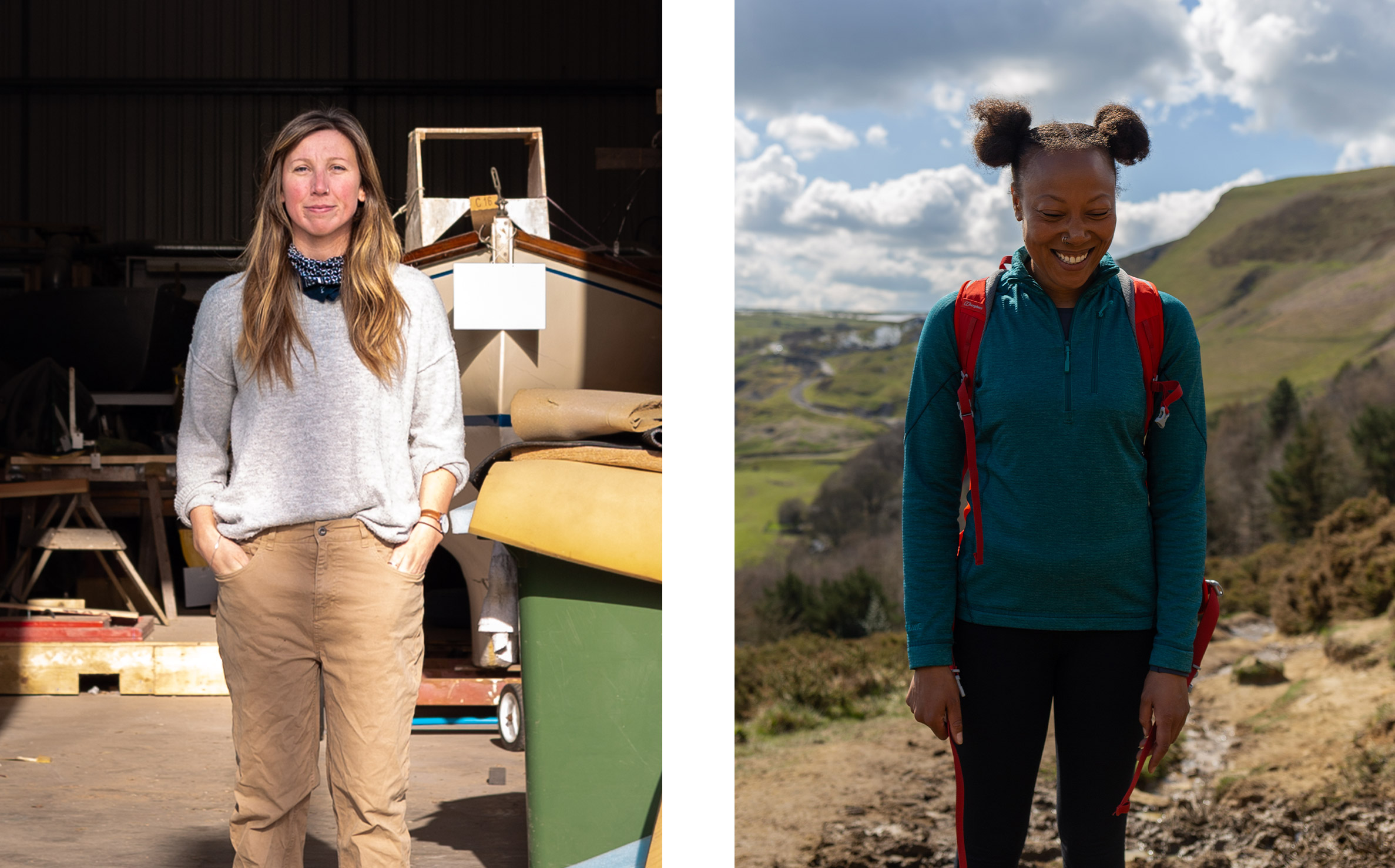
Glorious: You did a project called Outsiders: Her Stories, where you share stories and document inspiring women. Can you tell us about the experience?
Abbie Merritt: What started out as a simple observation grew into an ambition to encourage more meaningful relationships with the outdoors, to build women’s confidence in the natural world and to inspire a need to protect it. I met boatbuilders, foragers, explorers, scientists and athletes. Collecting these wonderful stories into one platform and seeing them in print was a hugely exciting moment. Although there weren’t many, the journal ended up all over the world, in libraries and schools and people’s homes.
The real moment I was kicking myself was when I was photographing Sarah Outen and her donkeys for the pages of Outsiders: Her Stories. Despite creating a project about how accessible and capable women are, I felt a lot of imposter syndrome towards my work that day. It was one of the shortest shoots I did and I was actually quite happy with the portrait I got of Sarah at her home, but I’m my own worst critic.
I felt really inspired meeting Rhiane Fatinikun in the Peak District, the founder of Black Girls Hike. We went for a walk as she explained the use of black women in outdoor media and tokenism, along with how important it is to inspire more women outdoors for mental health. Through her group, she is physically tackling the issue with role modelling by training up more diverse leaders across different outdoor activities.
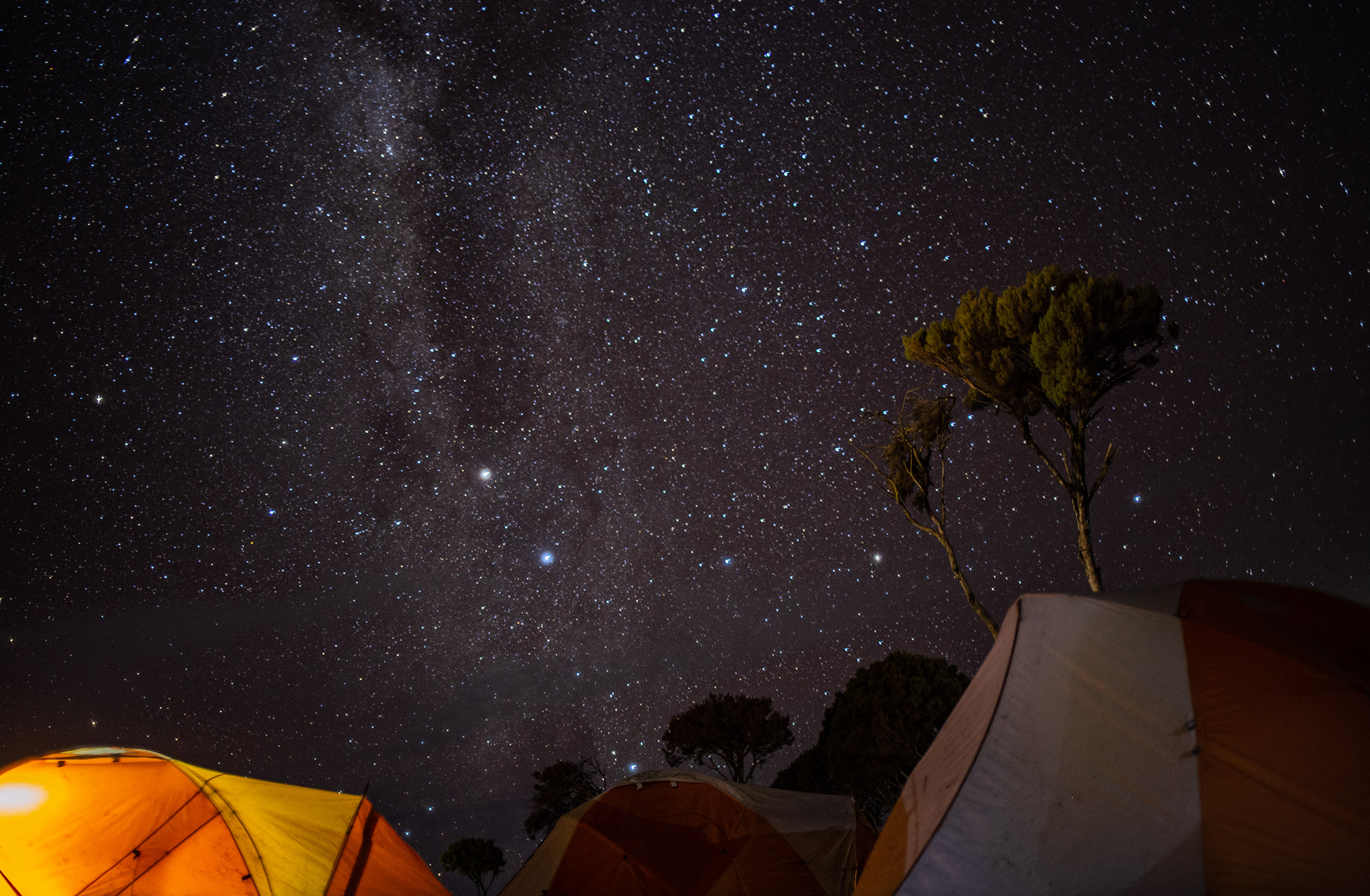
Glorious: You travel around the world. Which country is your favourite (and why) and would you like to travel next?
Abbie Merritt: I think I had an unhealthy perspective on travel when I was young. I just wanted to get out and explore everywhere, to experience everything. When I started connecting visiting places with a purpose for going, it started to click for me. For example, Kenya was an amazing opportunity to work closely with a charity that I loved and supported. That trip subsequently led to climbing Kilimanjaro, where I met one of my now closest friends. I went on to study the ethics of porters on high altitude climbs after I returned and submitted a dissertation inspired by the climb. [image provided: Tent on Kili] I would love the opportunity to work more in Scotland. It is such rugged terrain, full of wildlife. [images provided: Scotland: The Big Picture] Japan is extraordinary, it has so much energy and yet is so calm. I think it is the only place I’ve ever returned to And I’d be keen to visit again.
Glorious: Many of your projects are a mixture of people and environment – is this on purpose? What is the meaning of people, outdoor sports and the natural world to you?
Abbie Merritt: Through documenting the different lives we lead and those who choose to spend their lives outside, I hope to encourage a passion for the outdoors and inspire a need to protect it. I feel totally inspired by those who move in the outdoor domain.
Glorious: You say you love lending clarity to things which have been obscured. Would you say this applies to your photography of women in active sporting roles?
Abbie Merritt: Absolutely! The representation, through both imagery and words, surrounding outdoors and sporting women in mainstream media doesn’t delineate the women who participate in activity today. Whether they align with my values or elevate a social issue, I’m drawn to stories that I feel deserve to be told.
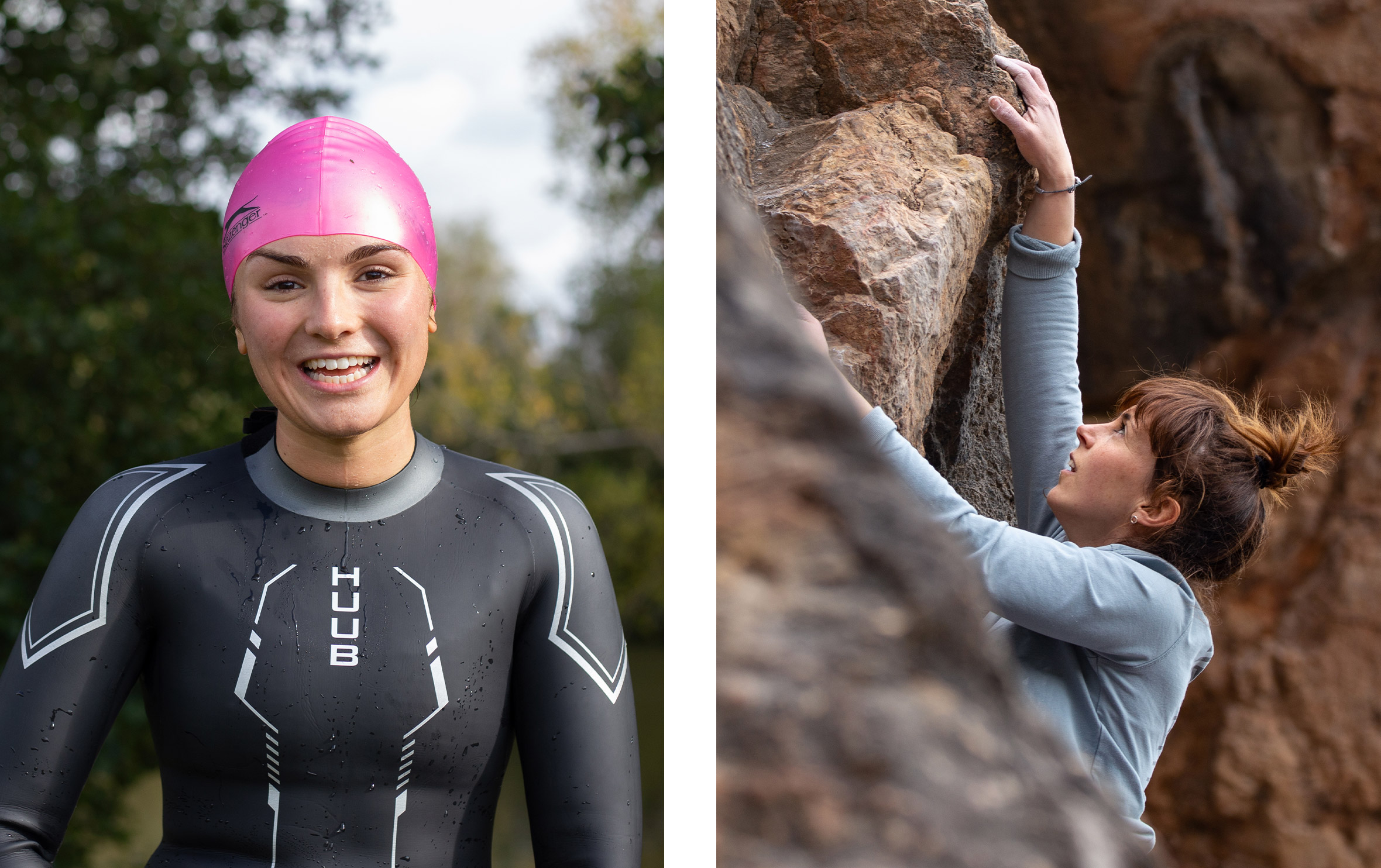
For instance, Jodi Thomas, a young wild swimmer and ecologist from the south east, shared a really valuable point in her contribution to Outsiders. Jodi never fitted into the stereotype that comes with being a young woman from Essex. She also never really appreciated her local area or her own ability in the outdoors until she left. When she returned, she could be found swimming in her local stream or running around the coast, with a better understanding of her area and a passion for being outside. This love for sport and her environment had always been there, but masked by the stigmatism that come with people who take part in outdoor activities, especially being based in Essex. Capturing Jodi’s story in 2021 ignited my passion to start documenting women in outdoor and sporting industries.
Glorious: Tell us about the most memorable stories you have captured and why they had an impact.
Abbie Merritt: Bomet in Kenya was unforgettable. I spent a couple of years in Falmouth supporting Dig Deep, a charity working hard to improve clean water, sanitation and hygiene in one of the most challenging and least resourced areas in Kenya. I had felt connected to this charity, having fundraised and supported them in advertising challenges and finding participants to raise money during my studies. When I met them in-country, I was shown exactly where the resources had been used and training had been implemented. What really got me was the impact the money and tuition had on the women and girls of the communities.
OPPORTUNITY
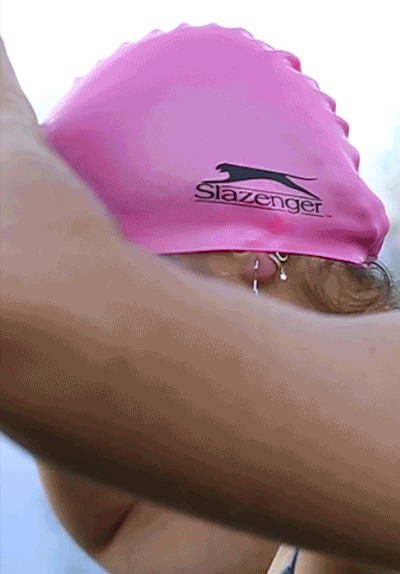
Where young women would have previously been at risk by attending school during their cycle, Dig Deep have built toilets and shower blocks to provide a private space. They also ensured access to menstrual products in schools. When I returned, I formed a five-year agreement with my institute to continue supporting the charity through a range of events and challenges. The photographs from this trip mean a lot to me, as it felt like the first time my images were used with an impact.
Abbie Merritt: If you could have dinner with three inspirational women, who would you choose and why?
Abbie Merritt: It’s hard to choose just three – but perhaps Jen Randall for the inspiration she has given my filming and documentary work. I’d also bring my friend Amy Warren, she’s this wonderful swimmer, climber, paddleboarder, cyclist… she’s a total inspiration and features on the cover of Outsiders. Then maybe Janis Joplin, because who wouldn’t want to hear what she had to say.
Glorious: What’s next for Abbie Merritt?
Abbie Merritt: As the Outsiders collective grows, I can feel a second volume of wild stories getting closer. I am motivated to keep working on this project and see where it goes but perhaps somewhere more challenging. The UK has come a long way with sporting and outdoor industries, not that it feels balanced, but I think I would like to visit somewhere that doesn’t seem to be moving so quickly. That way, the impact and improvements by supporting people to tell their stories would be even more significant.
My work seems to get ever more varied, which I love. I have all sorts of enquiries and projects, but I’m happy as long as I stick to my roots – I’m committed to changing the narrative and storytelling with a purpose. For now, with a focus on documenting outdoor topics and social issues, I continue to shoot stills, create short films and write for both print and online publication.
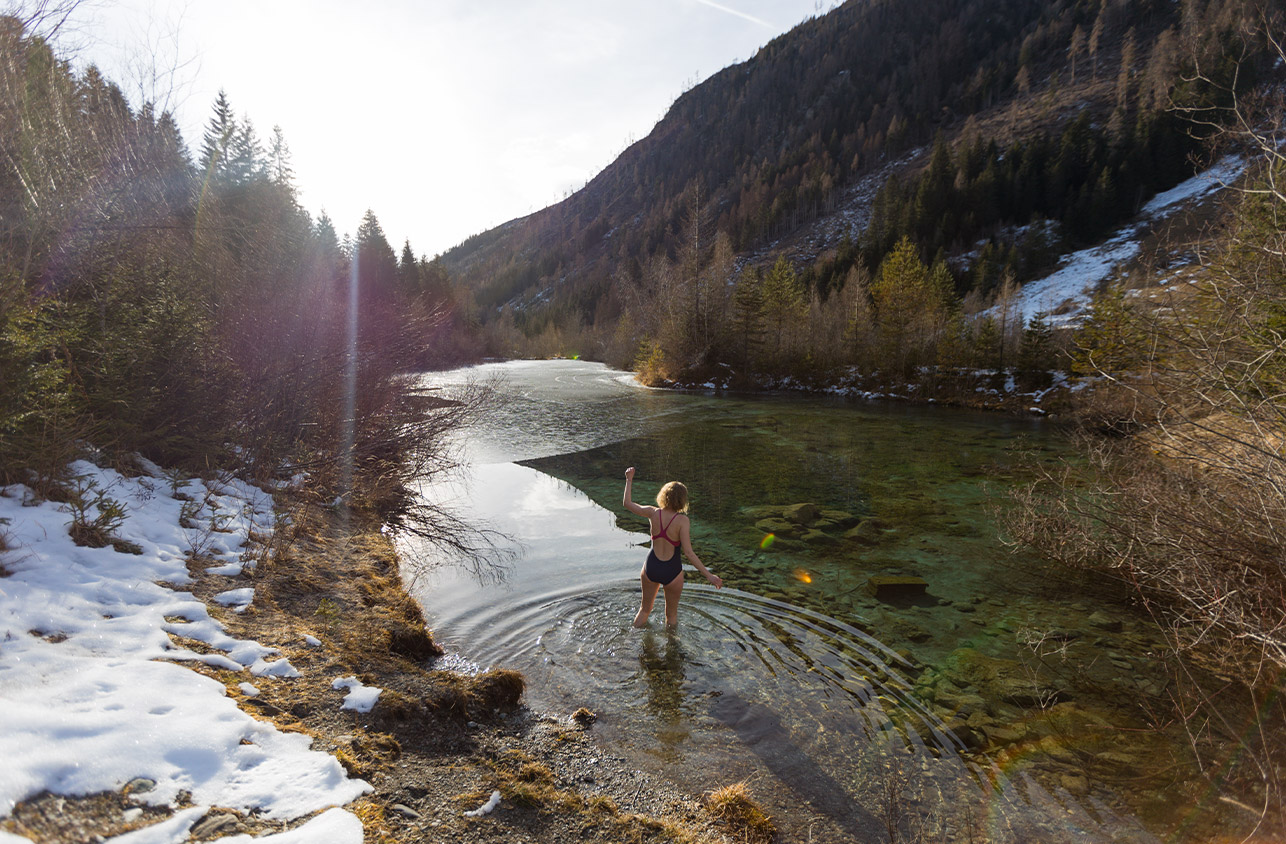
Editorial Design by this is root
Title Image Rhiane Fatinikun, the founder of Black Girls Hike, on a walk in the Peak District, 2021.

